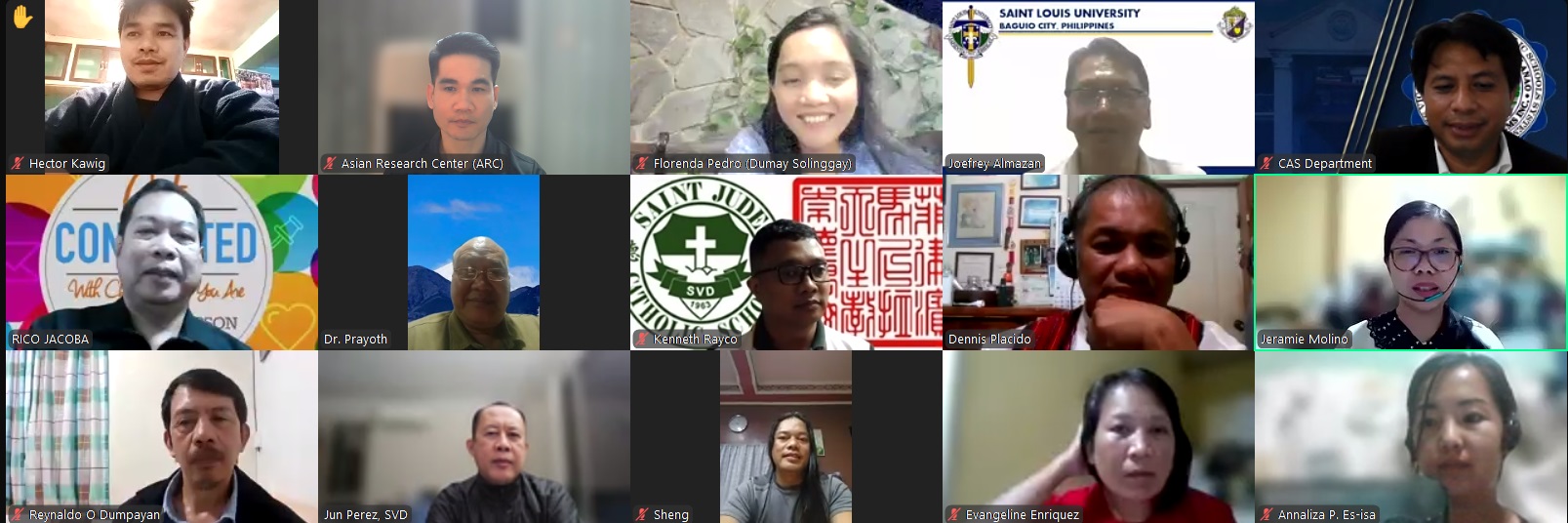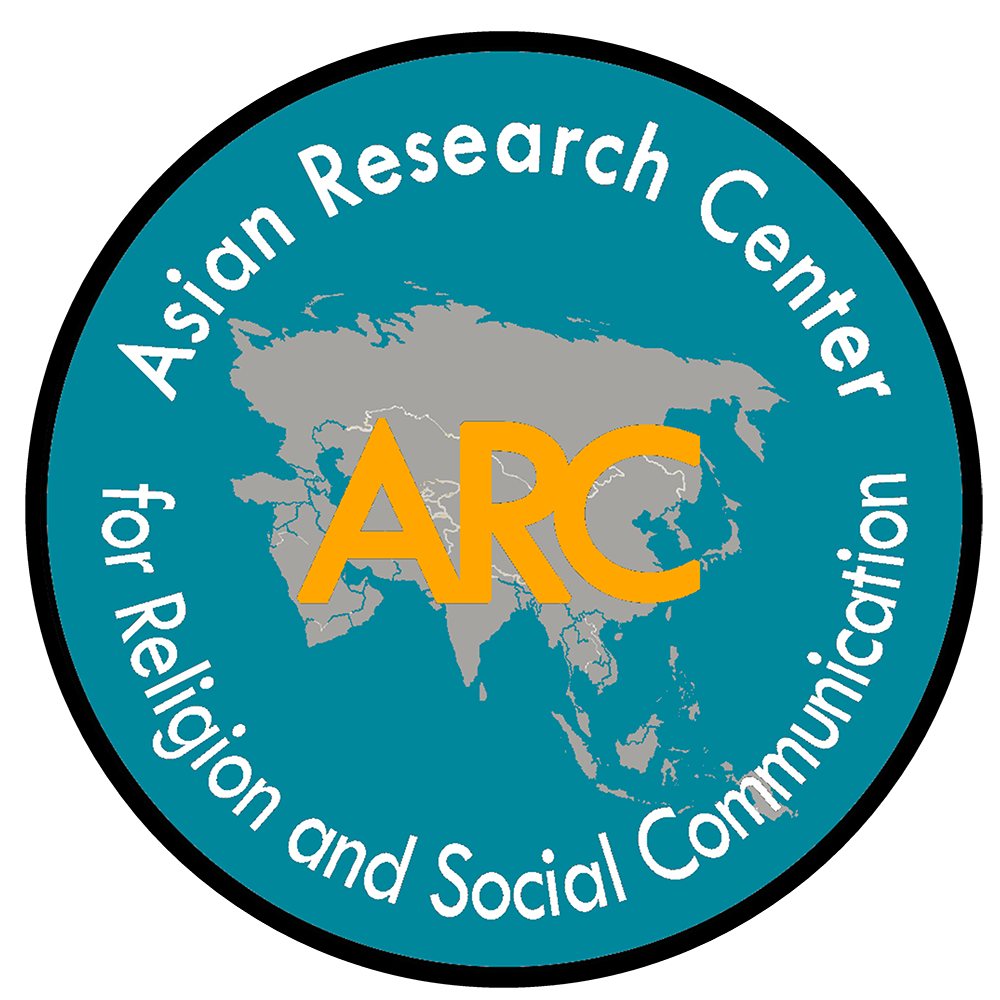Online Roundtable on Traditional Ecological Knowledge and Environmental Sustainability in the Philippines Context
On July 16, 2024, an enlightening online round table conference on environmental preservation took place, focusing on the theme of "Traditional Ecological Knowledge (TEK) on Environmental Sustainability." This event, scheduled from 7:00 PM to 9:00 PM on the Zoom platform, brought together esteemed speakers who shared their insights and research on the crucial role of traditional ecological practices in fostering sustainable environmental stewardship.
The conference commenced with an introduction and welcome remarks from Dr. Rico C. Jacoba, the Coordinator of the Asian Research Center in Religion and Social Communication (Philippine Chapter), followed by welcoming remarks from Rev. Fr. Anthony Le Duc, SVD, the Executive Director and Chief Editor of the Asian Research Center in Religion and Social Communication at St. John's University, Thailand. These opening remarks set the stage for a stimulating and informative session that highlighted the significance of integrating traditional ecological knowledge into modern environmental practices.
The first speaker, Dr. Dennis M. Placido, presented his paper titled "Exploring Strategies from Cordillera Concept of Inayan as a Response to Pope Francis’ Encyclical Laudato Si on Integral Ecology." Dr. Placido, an Igorot by heritage, is a distinguished scholar with extensive credentials in philosophy and educational management. His presentation delved into the Cordillera concept of "inayan," which, while literally translating to "inner-fear," encompasses a rich tapestry of meanings relevant to integral ecology. Dr. Placido explored how the principles of inayan could be harnessed to develop strategies for environmental preservation, aligning with the call for integral ecology in Pope Francis’ encyclical, Laudato Si’. By advocating a methodical approach of observing, interpreting, and living out these traditional values, Dr. Placido aimed to provide actionable insights to combat environmental degradation.
Following Dr. Placido, Dr. Reynaldo O. Dumpayan took the virtual stage with his presentation on "Reinterpreting Inayan as a Resource for Environmental Care." Dr. Dumpayan, a seasoned academic with a PhD in Applied Theology, discussed the underutilized potential of indigenous knowledge in environmental protection. He argued that the concept of inayan, traditionally motivated by fear of divine retribution, could be reinterpreted to emphasize solidarity with the natural world and just sharing of resources. This shift, he contended, could enhance the practical relevance of inayan in modern environmental care, offering a unique perspective on how traditional beliefs can be adapted to contemporary challenges.
Rev. Fr. Shierwin A. Cabunilas then presented his research on "Overcoming Urban Decay: The Case of Tourism in Baguio City." Fr. Cabunilas, a respected pastor and academician, examined the environmental impacts of tourism in Baguio City. He highlighted the detrimental effects of urbanization and increased tourist activity on the city’s environment, including pollution, habitat loss, and water scarcity. By critically analyzing existing policies and proposing sustainable measures, Fr. Cabunilas aimed to develop a framework that balances urban development with environmental preservation, ensuring that Baguio City can thrive both economically and ecologically.
Dr. George C. Tumbali continued the discourse with his presentation on "Exploring Traditional Ecological Knowledge (TEK) in Kalinga Province: Practices, Preservation, and Perspectives." As a political and social science professor, Dr. Tumbali shed light on the traditional ecological practices of the Kalinga people, emphasizing their deep-rooted connection with nature. His qualitative study, based on interviews with Kalinga elders, revealed how these traditional practices contribute to sustainable resource management and climate resilience. Dr. Tumbali also discussed the challenges posed by modernization and globalization to the preservation of TEK and offered recommendations to safeguard this invaluable knowledge for future generations.
Finally, Ms. Florenda Pedro, a Kankanaey poet and artist, presented her insights on "LATON: the Kankanaey Language of Soothing in the Social-Emotional Development of a Child." Ms. Pedro, who teaches in Vietnam and hosts a radio column on social and emotional learning, explored the nurturing practice of "Laton" within the Kankanaey community. She connected this traditional practice with modern social-emotional learning frameworks and attachment theory, highlighting the importance of integrating cultural practices into educational curricula to foster emotional intelligence and environmental consciousness among children.
The conference concluded with an open forum for questions and discussion, providing attendees with the opportunity to engage with the speakers and deepen their understanding of the topics presented. Closing remarks and expressions of gratitude to the speakers and audience followed, along with a group photo to commemorate the event.
Special thanks were extended to Dr. Jeoffrey Almazan and Dr. Jeramie N. Molino for their invaluable roles as moderators and readers of the introductions to the speakers. Their dedication and commitment ensured the smooth flow of the conference, facilitating a rich exchange of ideas and insights among participants.
This online round table conference was an enriching experience, offering valuable perspectives on how traditional ecological knowledge can be harnessed to promote environmental sustainability. It underscored the importance of preserving indigenous practices and integrating them into modern environmental strategies, fostering a harmonious relationship between humanity and nature.
For the Cordillerans, this conference underscored the critical importance of traditional ecological knowledge in environmental preservation. The event highlighted how indigenous practices, deeply rooted in cultural heritage, provide valuable frameworks for sustainable resource management. By revisiting and revitalizing these practices, communities can better address contemporary environmental challenges while preserving their unique cultural identities.
Traditional Ecological Knowledge (TEK) remains highly relevant in our fast-changing world as it embodies sustainable practices honed over generations. TEK offers adaptive strategies that can complement modern scientific approaches, fostering a holistic understanding of environmental stewardship. By integrating TEK with current environmental policies, we can create more resilient and sustainable ecosystems, ensuring the health and vitality of our planet for future generations.
This conference was not only a response to the challenge posed by Pope Francis in Laudato Si’ but also an alignment with the United Nations Sustainable Development Goals (SDGs). By integrating traditional ecological knowledge into modern environmental strategies, the event emphasized the global relevance of indigenous practices in achieving sustainable development and environmental stewardship.
In conclusion, the conference posed challenging questions and provided encouragement for Filipinos and the broader ASEAN community to revisit the importance of traditional ecological knowledge. How can we better integrate these time-honored practices into our modern lives? What steps can we take to ensure that the wisdom of our ancestors is not lost but instead harnessed to create a more sustainable future? These reflections urge us all to acknowledge the value of TEK and to strive for a harmonious relationship between humanity and nature.
Jeramie N. Molino, Ph.D.





![[Public Lecture] Dominance, diversity and decoloniality: Changing media discourses on ‘religion’ in Australia](https://asianresearchcenter.org/storage/image/2025/06/joint-lecture-social-media-poster-final-1750425159.png.160x96.webp)



